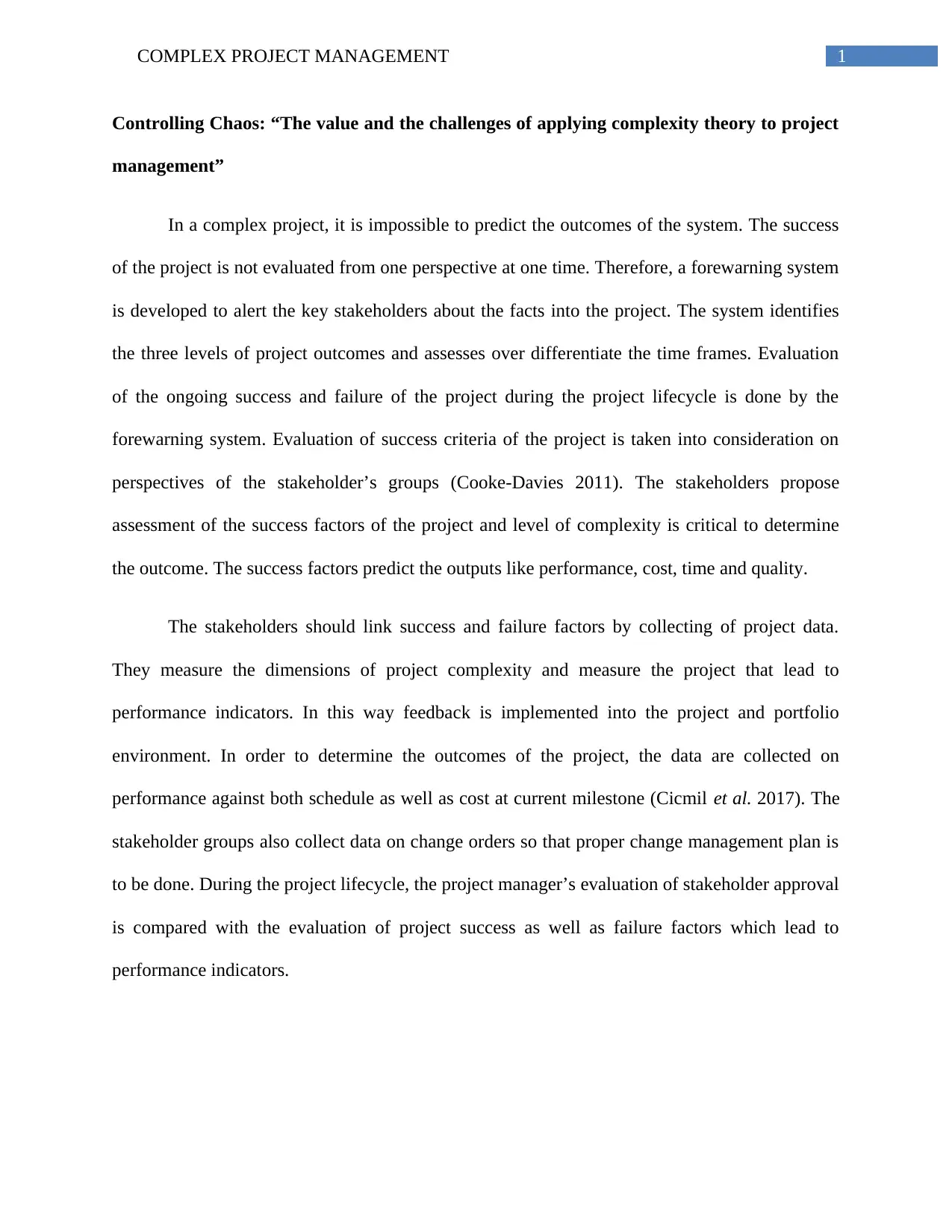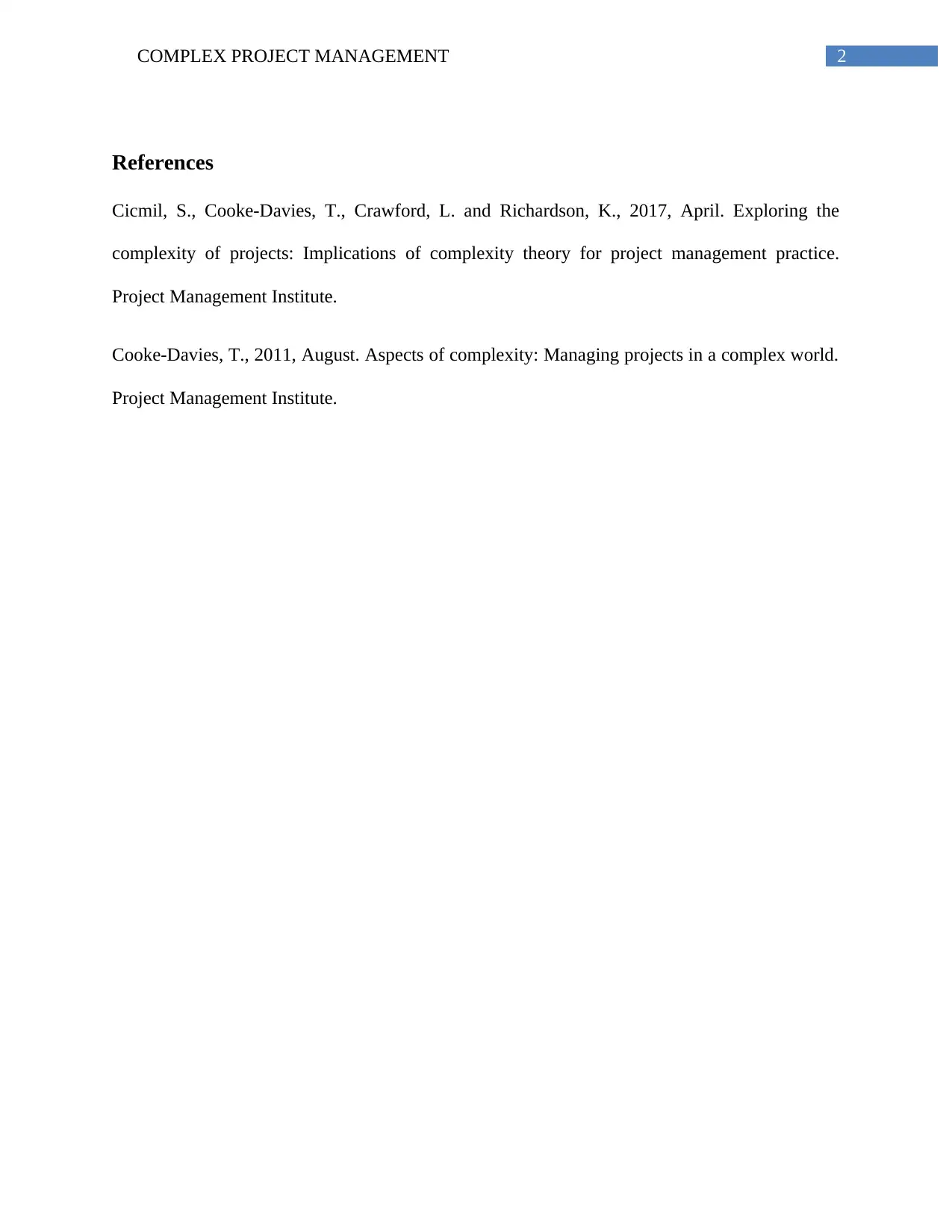Complex Project Management: Stakeholder Evaluation and Outcomes
VerifiedAdded on 2020/03/16
|3
|392
|87
Report
AI Summary
This report delves into the complexities of project management, particularly focusing on how to navigate the challenges and uncertainties inherent in complex projects. It emphasizes the importance of understanding project outcomes, which are not always predictable, and highlights the need for a forewarning system to alert stakeholders about potential issues. The report stresses the significance of stakeholder evaluation in determining project success, considering their perspectives and assessing success factors like performance, cost, time, and quality. Data collection on performance, costs, and change orders is crucial for effective project management. The report concludes by emphasizing the importance of the project manager’s evaluation of stakeholder approval in relation to the project's overall success and failure factors. The report references key publications in the field of project management, providing a comprehensive overview of the topic.
1 out of 3





![[object Object]](/_next/static/media/star-bottom.7253800d.svg)